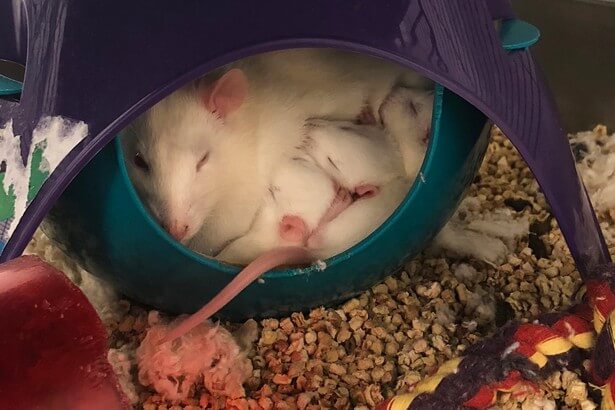Rat mothers in enriching environments give birth to larger offspring, are more efficient parents, and have heartier breastmilk, compared to mothers in standard laboratory housing, according to research published in eNeuro.
Rats born to mothers in an enriched environment with new, interesting toys and things to explore have higher body weights and are more social than those born in standard laboratory housing. But this effect disappears when a rat born to an enriched mother is brought up by a standard-housed mother, a sign something in the postnatal environment is driving the benefit — something like breastmilk.
DeRosa et al. monitored the behaviors and examined the breastmilk of mothers in enriched and standard environments. The enriched mothers were more efficient: they spent less time at the nest, like rats in the wild, but still groomed and nursed their offspring enough. The two types of moms did not differ in food consumption or body weight, but milk from the enriched mothers contained increased levels of triglyceride, a main source of energy. The milk also had greater microbiome diversity, including more bacteria linked to bodyweight and metabolism. These results highlight how external influences on the mother can impact the offspring via breastmilk and showcase the importance of enriched environments when studying rats.
###
Paper title: Milking It for All It’s Worth: The Effects of Environmental Enrichment on Maternal Nurturance, Lactation Quality, and Offspring Social Behavior
Please contact [email protected] for full-text PDF and to join SfN’s journals media list.
About eNeuro
eNeuro is an online, open-access journal published by the Society for Neuroscience. Established in 2014, eNeuro publishes a wide variety of content, including research articles, short reports, reviews, commentaries and opinions.
About The Society for Neuroscience
The Society for Neuroscience is the world’s largest organization of scientists and physicians devoted to understanding the brain and nervous system. The nonprofit organization, founded in 1969, now has nearly 37,000 members in more than 90 countries and over 130 chapters worldwide.


